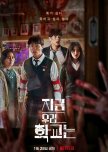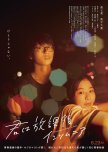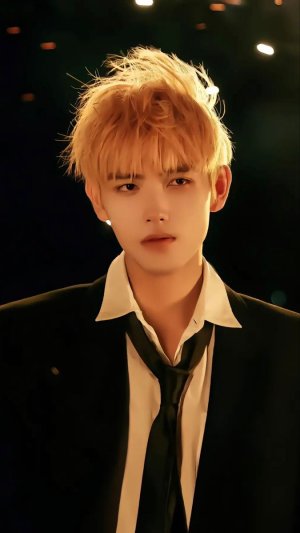
Yomei Ichi Nen no Boku ga, Yomei Hantoshi no Kimi to Deatta Hanashi.
23 mensen vonden deze beoordeling nuttig
Deze recentie kan spoilers bevatten
Beautiful & Emotional
A deeply moving and beautifully executed film, this masterpiece carries profound messages that leave viewers introspecting and, in some ways, evolving into better versions of themselves.Immense gratitude to the entire crew for creating such an extraordinary piece of cinematic art! 💖
Here’s what stood out to me about this movie:
Cinematography and Color Grading:
The visuals were simply breathtaking. Each frame felt like a work of art painted on a canvas, leaving me with goosebumps. Kudos to the director of photography and the colorists for their impeccable work, elevating every scene with stunning detail.
Acting, Script, and Editing:
The performances were nothing short of spectacular. The cast delivered their roles with such authenticity that every emotion felt raw and genuine. The script was finely tuned, and the editing ensured a seamless flow that carried the audience effortlessly through the story.
Background Music:
The score complemented the narrative beautifully. It amplified the emotional weight of key moments and added depth to the storytelling, proving how crucial sound is to the overall experience.
Key Highlights:
The chemistry between the lead characters, Hayasaka and Haruna, was heartwarming and bittersweet. Their connection was portrayed with a subtlety that felt natural and unforced. By the end, their heartfelt expressions left me teary-eyed. The conclusion was beautifully executed, leaving a lasting impression with its grace and poignancy.
What I Learned:
This movie is a testament to the art of character development. While it begins at a slow pace, it gradually deepens, immersing the audience in the evolving relationship between the protagonists. Without excessive dialogue or overt declarations of love, their bond is depicted through meaningful actions and heartfelt gestures. It’s a touching reminder to treasure the people around us and to cherish every moment we have with them.
Beyond the sadness, this film also celebrates the complexities of love. It paints a vivid picture of how relationships can be messy yet incredibly powerful and enduring.
The characters feel so authentic that you’ll find yourself fully invested in their journey, rooting for them through every challenge. This movie isn’t just something you watch—it’s something you carry with you long after the credits roll.
The director has an exceptional understanding of human emotions, crafting a narrative that’s both visually stunning and emotionally profound. The actors truly shine, embodying their characters so deeply that they seem to step off the screen.
This is an unforgettable film, and I can’t recommend it highly enough. It’s an experience you won’t regret—just don’t forget the tissues! ❤️
Vond je deze recentie nuttig?

"Queen's Battle: Defying a Male-Dominated World"
I know you’re not a fan of the nudity or certain plot points, but keep in mind that the entire story unfolds in just one day. While there are some noticeable shortcomings, it’s clear that everyone involved has put in a lot of hard work to bring this production to life.Queen Woo captivates audiences with its dazzling visuals, remarkable performances, and immersive narrative. From the outset, it delivers an enthralling experience that combines both historical depth and artistic flair, solidifying its place as one of the most impressive historical dramas in recent memory.
Highlights:
Breathtaking Visuals: The series stands out for its incredible production quality. Every detail, from the intricately designed costumes to the grand set pieces, transports viewers to the world of Goguryeo. The visual direction is consistently stunning, with scenes that are beautifully framed, reflecting both the splendor and the turmoil of the royal court. The use of color, lighting, and cinematography not only enhances the drama but adds layers of symbolism, making each moment feel thoughtfully curated.
Dynamic Performances: The performances are nothing short of extraordinary. Jeon Jong Seo is magnetic as Queen Woo, bringing both strength and vulnerability to her role. She effortlessly commands the screen, portraying a queen whose intellect and courage shine through in every scene. Her portrayal of a leader determined to navigate the treacherous waters of power and politics is inspiring. Supporting actors like Ji Chang Wook and Kim Mu Yeol bring their characters to life with depth and intensity, creating a multi-dimensional narrative filled with compelling character arcs.
Engaging Storyline: What makes Queen Woo so captivating is its ability to weave a fast-paced, thrilling story while still maintaining emotional depth. The series balances action with strategic court intrigue, creating a drama that keeps viewers on the edge of their seats. The narrative is filled with unexpected twists, tension-filled moments, and powerful emotional beats that resonate deeply. It showcases the complexities of leadership, loyalty, and the struggles faced by those in power.
Historical Richness with Creative Flair: While grounded in history, the show injects enough creativity to make it feel fresh and exciting. The portrayal of the royal court is gripping, offering insight into both the grandeur and the peril that comes with ruling. The historical elements are well-researched, but the show also takes artistic liberties in a way that enhances rather than detracts from the overall experience. The use of shamanism, for example, adds an intriguing mystical layer that enriches the story without overshadowing the historical core.
Well-Crafted Action Sequences: For fans of action, Queen Woo does not disappoint. The battle scenes are meticulously choreographed, delivering high-energy sequences that are as exhilarating as they are visually impressive. The intensity of the combat mirrors the tension within the palace, creating a seamless blend of physical and emotional conflict.
Final Thoughts:
Queen Woo is a well-crafted drama with strong performances, a solid historical backdrop, and visually appealing scenes. While it may not break new ground in every aspect, it remains an engaging watch for fans of the genre. With its intriguing plot and capable direction, it sets a promising foundation, and if a second season follows, it has the potential to build on its strengths.
Vond je deze recentie nuttig?

Deze recentie kan spoilers bevatten
"The Ultimate Rollercoaster of Emotions: A Heartfelt Journey of Love, Loss, and Healing"??
IntroductionAfter months of anticipation, this drama has finally arrived, and the first episode did not disappoint! If you're looking for a show that tugs at your heartstrings from the get-go, you're in for a roller coaster of emotions. I found myself tearing up a good bajillion times, and it's clear I'm in for a ride filled with both joy and sorrow. The opening scene alone sets the tone for what’s to come — it's not going to be a sunshine-filled journey, and I’m already emotionally bracing myself.
But it’s not all doom and gloom. There are moments of light, like the adorable flashbacks of the leads’ happier times — they may be fleeting, but they pack an emotional punch. The clever balance of dark humor, like Hae Jo’s (Woo Do-hwan) terminal illness and Jae-mi’s (Lee Yoo-mi) struggle with conception, injects a surprising amount of levity into their otherwise heartbreaking predicaments. And let’s not forget the cameo by Lee Da Hee, which added a delightful twist to the episode!
It’s clear that this drama is channeling the vibes of independent American cinema from the late '90s to early 2000s, and I’m here for it. The closing song, "California Dreamin'" by The Mamas & the Papas, perfectly encapsulates the emotional and nostalgic atmosphere.
=====================================================================================
Plot/Storyline
Hae Jo, feeling like an outsider due to not knowing who his real father is, learns that he is terminally ill. Faced with this harsh reality, he decides to take drastic action and kidnaps his ex-girlfriend, Jo Jae Mi, dragging her along on a journey to find the truth about his father.
Jo Jae Mi is about to marry Eo Heung, the heir to a powerful food company, in hopes of finding the family she’s always wanted. But the Eo family only accepts her because Heung claims she’s pregnant. On the day of the wedding, Hae Jo kidnaps her, and Eo Heung desperately begins searching for them.
As Hae Jo and Jae Mi spend time together, old feelings resurface. Despite the suffering and conflict they endure, they begin to fall back in love. Their journey becomes even more emotional as Hae Jo struggles with his illness, knowing he doesn’t have much time left. With their past and future uncertain, Hae Jo and Jae Mi must navigate their complicated relationship while confronting the truth that time is running out.
===================================================================================
Characters
Haejo (ML)
Haejo, played by Woo Dohwan, begins as a selfish, fun-loving man who drags Jaemi into his chaotic world. He seems indifferent to the people around him, consumed by his search for answers about his past. Throughout his journey, he struggles with the weight of his own flaws and a deep-seated belief that he’s destined to die alone. For much of the story, he’s resigned to this fate, thinking that happiness is fleeting and that he’ll always be alone in the end. “I just want to die alone... no one should have to suffer because of me.”
But Haejo’s story isn’t just about running from his inevitable end. It’s about learning that love, real love, isn’t something you can escape. Through the unwavering support of Bongsuk, and the presence of Jaemi, Haejo slowly begins to understand that he’s been loved all along, even if he couldn’t see it. By the end, as he faces the truth of his own mortality, Haejo lets go of his fear. Surrounded by those who truly care for him, he accepts that, while he may not have a long life, he’s lived it in a way that matters.
In his final moments, as he lies in Jaemi’s arms, surrounded by snow, he finds peace—no longer wanting to die alone, but to be with those who love him. “I never thought I’d be this lucky… to die in the arms of someone I love.” His smile isn’t one of resignation—it’s one of acceptance, knowing that even though life was short and filled with flaws, he found something beautiful in the end.
Jaemi (FL)
Jaemi, portrayed by Lee Yumi, is the classic K-drama heroine, caught between the stability of her fiancé and the chaos of Haejo’s love. Even after being abandoned by Haejo years ago, she can’t help but crave him. Despite his constant emotional turmoil, she stays, proving that sometimes love is messy, imperfect, but worth the fight. Jaemi’s growth is about learning to love herself, even while loving someone else. “You can love someone who isn’t perfect, but don’t lose yourself in the process.”
Eo Heung (SML)
Oh Jungse shines as Eo Heung, the mama's boy turned independent man. His love for Jaemi transforms him, pushing him to defy his mother and save her when she doesn’t want to be saved. His growth is about gaining confidence and becoming the man Jaemi needs—no longer just a follower, but a leader in his own right. “Love isn’t just about being there when it’s easy—it’s about showing up when it’s hard.”
Bongsuk
Bongsuk, played by Lee El, is Haejo’s rock—his mother, sister, and love all rolled into one. She represents unconditional love, always there to support Haejo no matter his flaws. She teaches him that love can heal wounds, and though he loves Jaemi, Bongsuk’s role in his life remains irreplaceable. “Unconditional love isn’t about waiting for the perfect moment; it’s about standing by someone when they’re at their worst.”
Gi Ho
Gi Ho adds depth to the story, showing loyalty, sacrifice, and the struggle between holding on and letting go. His role might seem secondary, but he plays a key part in pushing other characters toward growth and introspection.
==================================================================================
Pacing: The pacing flows seamlessly between high-energy moments and tender, emotional pauses, keeping you hooked while allowing deep character connections to form.
Visuals/Production: Stunning cinematography and meticulous set design create a world where every frame tells a story, enhancing the emotional depth beyond words.
Sound/Music: The carefully curated soundtrack perfectly amplifies every moment, seamlessly blending with the visuals to leave an unforgettable emotional impact.
====================================================================================
Emotional Impact:
This drama broke me—one moment I was laughing, the next, I was in tears. The journey teaches us that life is about letting go of destinations and embracing the unknown: “Never set a destination. Just let your instinct guide you. You become a drifter.”
Strengths:
The perfect balance of humor and heartbreak, where Haejo’s antics make you laugh and his pain leaves you shattered—an unforgettable emotional rollercoaster.
====================================================================================
Conclusion:
This drama is a heartfelt journey of love, trauma, and the power of found family. The final episode beautifully showcases the characters’ growth and reconciliation, particularly when they come together around the table, forming a bond stronger than blood. Haejo, reflecting on his life and the people he’s come to care for, provides a bittersweet but touching conclusion to his journey.
The show masterfully portrays the lasting effects of childhood trauma and abandonment issues. Characters, especially Haejo and Jaemi, are complex, shaped by their pasts, and show a profound depth in their relationships. The drama’s message about trust, vulnerability, and accepting love despite flaws resonates deeply.
The ending is poignant—a reminder that life is fragile, but living with love and joy is the most meaningful way to go. Haejo, who feared dying alone, finds peace in the arms of his true love, surrounded by those who care for him. It’s a beautiful, poetic ending that encapsulates the emotional core of the story.
The soundtrack, especially California Dreamin’, complements the themes of longing and belonging, adding another layer of depth to the drama. The songs were placed perfectly, enriching the emotional atmosphere. This drama stands out as one of the best, offering a rollercoaster of emotions, strong performances, and a unique, angsty romance that leaves you thinking long after the credits roll.
Recommendation:
This drama is perfect for fans of complex characters, emotional growth, and unconventional love stories. If you enjoy quirky, angsty romances and deep emotional storytelling with a touch of humor, this is a must-watch. Lee Yoo-mi's portrayal of Jaemi and the stunning chemistry between the leads elevate the drama, making it unforgettable.
Vond je deze recentie nuttig?

Deze recentie kan spoilers bevatten
Students Fight For Their Lives Inside Of A School Overrun By Zombies
From the moment the series begins, All of Us Are Dead hooks viewers with its intense atmosphere and deeply emotional narrative. It’s more than just another zombie drama; it’s a layered story that delves into the harsh realities of adolescence, social pressures, and human resilience, all set against the backdrop of a zombie apocalypse.The show wastes no time immersing us in the daily struggles faced by its young protagonists. The South Korean educational system, infamous for its relentless academic demands, becomes the stage for a gripping tale of survival. The series sheds light on the emotional toll these pressures take, with bullying, mental health struggles, and societal neglect forming the core of the characters’ pre-apocalypse lives. This grounded realism elevates the story, making the characters’ fight for survival all the more impactful.
One of the show’s standout elements is its exploration of relationships. Each character brings unique perspectives and motives, and their interactions—whether strained, supportive, or heart-wrenching—add layers of depth to the narrative. The camaraderie, conflicts, and sacrifices they share make them feel incredibly real. You can't help but root for their survival, mourn their losses, and celebrate their small victories.
Thematically, All of Us Are Dead shines by addressing societal issues faced by youth, not just in South Korea but globally. The narrative doesn't shy away from heavy subjects like bullying, depression, and the unforgiving pressures of academic excellence. These themes are woven seamlessly into the story, creating a poignant reflection on the struggles of modern youth.
As the zombie outbreak takes hold, the series shifts into an adrenaline-fueled thriller. The chaos, desperation, and heartbreak of the students’ fight for survival are depicted with unrelenting intensity. The relentless pace, paired with exceptional storytelling, keeps you glued to the screen.
The parallels to the Covid-19 pandemic are impossible to miss. From quarantine measures to the fear of infection and the divide between personal concerns and societal demands, the series captures the uncertainty and tension of living through a global crisis. This connection makes the story even more resonant, as viewers are reminded of the fragility of life and the importance of community and hope.
On the technical front, the series is a visual masterpiece. The cinematography captures both the beauty and the horror of the unfolding events. The special effects and makeup are stunning, particularly in portraying the terrifying transformation of infected individuals. Every frame feels deliberate, adding to the immersive experience.
Despite its brutal moments, the show never loses sight of its emotional core. The acts of love, friendship, and selflessness scattered throughout the series create a powerful contrast to the violence. These moments of humanity serve as the heart of the story, reminding us that even in the darkest times, compassion and connection endure.
The finale of All of Us Are Dead leaves a profound impact. Without giving away spoilers, it’s a conclusion that feels both devastating and hopeful, offering closure while leaving room for reflection. It’s a fitting end to a series that balances horror with heartfelt storytelling.
In summary, All of Us Are Dead is an unforgettable journey that combines action, emotion, and social commentary. It’s more than just a zombie drama—it’s a reflection on the resilience of the human spirit and the complexities of growing up in a harsh world. This series is a must-watch, not only for fans of the genre but for anyone seeking a story that stays with you long after the credits roll.
Vond je deze recentie nuttig?

Really cute, original story in the fairy tale genre. The initial idea is good.
A charming and fresh take on the fairy tale genre, this story is truly delightful and has an intriguing premise that instantly captures your attention.Stellar Performances Shine Bright
Chae Jong Hyeop deserves endless praise for his portrayal. His ability to convey profound emotions for the female lead (FL) makes the romance feel incredibly real and intense. His natural warmth, bright smile, and expressive acting breathe life into the character, making it impossible not to root for him. Not to mention, his cooking skills on-screen, especially with traditional Korean dishes, add an endearing layer to his character.
Having followed his work, I’ve also enjoyed his role in The Castaway Diva, a stunning musical drama, and his memorable appearance as Na-bi's chef friend in Nevertheless. His versatility continues to impress with every project.
A Unique Blend of Cultures
The fusion of Korean and Japanese cultures in this series adds a special charm. Hearing the mix of both languages was refreshing, giving the story a unique identity that sets it apart. This cross-cultural collaboration enriched the overall viewing experience.
A Mixed Approach to the Female Lead
While Mizuki Yamashita performed her role with sincerity, her character’s excessive shyness often felt at odds with her age and professional responsibilities. At times, her reserved demeanor was frustrating and made it harder to connect with her.
It’s evident that the actress herself has a vibrant and outgoing personality, as reflected in her polished appearance, stylish outfits, and well-maintained nails. A more confident, modern portrayal would have elevated her character and complemented the storyline better.
This portrayal of overly timid women seems to be a recurring trope in Japanese dramas, which may resonate culturally but feels outdated and less appealing to broader audiences. Hopefully, future seasons can address this by giving female characters stronger, more assertive roles.
Supporting Cast and Future Prospects
Taishi Nakagawa also stood out with his solid performance, and the cast as a whole brought depth to the story. While the series is enjoyable as is, there’s definite room for improvement. A second season with more dynamic character arcs and a well-thought-out progression would elevate it to even greater heights.
Overall, this drama offers a unique mix of romance, cultural flavors, and heartfelt performances, with Chae Jong Hyeop as the undeniable highlight. It’s worth watching for the warmth and chemistry between the leads, even if the storyline could benefit from a more modern perspective.
Vond je deze recentie nuttig?

Deze recentie kan spoilers bevatten
More Than a Rom-Com: A Deep Dive into Love and Life
*Love Next Door* is the kind of drama that sneaks up on you. You start expecting a light-hearted rom-com, ready to be charmed by the bickering "friends to lovers" trope, but what you get is a deep dive into complex family dynamics, existential questions, and a side of free therapy. 🎢 It's the type of show that gives you butterflies, a touch of annoyance, and maybe even a few "I need to rethink my life" moments. And, oh boy, did it deliver all of that and more.At first glance, it seems like a simple slice-of-life rom-com, but beneath that cozy exterior lies a drama packed with introspection and emotional weight. The story beautifully explores the scars of growing up neglected, feeling the pressure to succeed, and the awkward art of rebuilding relationships that never really took off. It asks questions like, "Can I ever be more than my parents' pride and joy?" and, "Why do dreams feel like luxuries for the privileged?" In other words, *Love Next Door* doesn’t just aim for your heartstrings—it goes straight for your soul. 💔
Now, let’s talk about the characters. On paper, Seung Hyo and Seok Ryu sound like your typical K-drama leads—she’s ambitious and independent, and he’s a little self-centered and emotionally closed-off. But the writers took it a step further by giving them real flaws that affected their relationships in ways that felt... too real. Seok Ryu’s fierce independence is admirable, but is it always a good thing? And Seung Hyo’s tendency to view everyone’s problems through how they affect *him*? Oh, we’ve all been guilty of that at some point. 🤨
Admittedly, Seok Ryu's journey was more fleshed out than Seung Hyo’s. It felt like *her* story, and while he was important, he wasn’t always the star of his own show. It's a common K-drama imbalance, but it didn't take away from the overall experience—it just made Seok Ryu's arc feel more impactful. Still, I wasn’t fully sold on their transition from friends to lovers. One minute they were bickering, the next they were in love, and I couldn’t help but think, “Wait, when did *that* happen?” But hey, maybe I blinked too long during a lip-biting scene. 😅💋
Speaking of lip-biting... Jung Hae In. Need I say more? If watching him swim, bite his lip, and navigate complicated emotions doesn’t get you hooked, I don’t know what will. His character may have been a bit whiny at times, but let’s be real—JHI could probably make even whining look charming. Meanwhile, Jung So Min was equally compelling, despite her character’s tendency to yell a bit too much for my taste. But in the end, her relatability and depth stole the show for me.
Now, let's throw some love to the supporting cast because they truly *made* this drama. The parents? Their stories were just as captivating as the main leads. In fact, I found myself more invested in their complicated relationships at times than I was in the main romance. The subtle friendship between the mothers? Chef’s kiss. 👩❤️👩 And Jo Han Chul’s portrayal of Bae Geun Sik? Well, let’s just say I cried when he cried and laughed when he laughed. That man deserves all the awards. 🏆
But hey, it wasn’t all sunshine and rainbows. The drunk scenes and occasional over-the-top yelling took up a bit too much screen time for my taste. And let’s not forget the friendship dubbed “lavender,” which was honestly a bit unbearable to watch. Thank goodness for the younger generation’s far more lovable and heartwarming friendships—they saved the day. 👏
In the end, *Love Next Door* is not just a rom-com. It’s a thoughtful exploration of relationships, family, and the messiness of life. It’s not about who’s right or wrong; it’s about combining different perspectives to see the bigger picture. It’s about privilege, setbacks, and fears—real issues that we all face. And even though it might occasionally frustrate you, it’ll also make you think, laugh, cry, and question your own assumptions about people and relationships.
Is it perfect? No. But it’s honest, it’s real, and it’ll leave you with enough emotions to fill a journal—or a long-winded review like this one. 😉
So, if you’re looking for something deeper than just a standard love story, give *Love Next Door* a try. Just make sure you’re ready for the feels. 💫
A shoutout to @kate and @Jojo for inspiring some ideas in writing this review! Your insights made the experience all the richer. Thank you! 🙌✨
Vond je deze recentie nuttig?

The Lighter and the Princess' Gown
5 mensen vonden deze beoordeling nuttig
Deze recentie kan spoilers bevatten
A Heartfelt Journey Through Youth and Growth ?
“Lighter and Princess” (2022)unfolds as a beautifully crafted Chinese drama that begins with the familiar setting of a college campus drama—a world where dreams and youthful romance collide. Yet, this 36-episode series evolves into something far more profound, delving into the complex terrain of human struggle and personal growth.Plot and Themes ✨:
Initially, 'Lighter and Princess' captures the light-hearted charm of youth, with its vibrant characters and their pursuit of dreams. But as the story progresses, it reveals a richer, darker undercurrent—a narrative that doesn't shy away from the rough edges of life. The drama is divided into two well-paced segments, each marked by impeccable cinematography and a soundtrack that perfectly complements its emotional beats.
At its core, the story is about the imperfections and struggles of its characters, which ultimately make them memorable. The journey of Li Xun (Chen FeiYu), Zhu Yun (Zhang JingYi), and Gao JianHong (Zhao ZhiWei) is a reflection of our own human quest to navigate flaws, seek redemption, and strive for personal growth.
Reflections and Insights 💭📚:
Watching this drama brought to mind Mitch Albom's memoir, *Tuesdays with Morrie*. The recurring theme, "What’s wrong with being number two?" resonates throughout the series, particularly through Gao JianHong's journey. The drama explores why we chase after being the best and questions whether this pursuit is truly fulfilling.
In essence, the series suggests that personal growth is not about outshining others but about surpassing our past selves. It’s a journey of self-improvement and understanding what truly matters to us, rather than merely striving for external validation.
Characters and Development 🌟❤️:
- Li Xun: An introverted genius who struggles with loneliness and a desire to make a difference in the world. His character's evolution—from a solitary coder to a loving partner—highlights the complexities of balancing personal pain and relationships.
-Zhu Yun: The supportive and rebellious friend who learns to assert her independence. Her growth reflects the struggle of balancing personal dreams against societal expectations and familial control.
- Gao JianHong: The rival who battles envy and personal insecurities. His story is a powerful reminder of how destructive jealousy can be, and how true victory lies in personal self-acceptance and growth.
Acting and Cast 🎭🌟:
The performances are exceptional. Chen FeiYu and Zhang JingYi embody their roles with such depth and authenticity that their chemistry is palpable. Each emotion, from joy to sorrow, feels genuine and compelling, drawing viewers deeply into their story.
Music and Cinematography 🎶📸:
The soundtrack of *Lighter and Princess* is a standout feature. The opening theme and the accompanying OSTs perfectly capture the emotional highs and lows of the drama. Combined with stunning cinematography, the music enhances the viewing experience, leaving a lasting impact.
Final Thoughts 🌟💬:
*Lighter and Princess
transcends the typical campus drama. It’s a poignant exploration of growing up, facing flaws, and the power of love. The addition of a cancer storyline in the final episodes serves as a powerful plot device, pushing characters to confront what truly matters in life.
In summary, this drama is more than just entertainment; it’s a profound reflection on life, growth, and the human condition. For anyone looking for a series that offers both emotional depth and insightful reflections, *Lighter and Princess* is a must-watch. It’s a gem that will stay with you long after the final episode ends.
Rating: 10/10 ⭐️
"May we all find the strength to love and be loved, and never forget what truly matters in our journey through life."
Vond je deze recentie nuttig?

Konya, Sekai Kara Kono Koi ga Kietemo
5 mensen vonden deze beoordeling nuttig
Tender, romantic, and sad
Japanese filmmakers have an extraordinary ability to craft delicate and heartfelt romance stories, and this film is no exception. It takes you on an emotional journey, lifting your spirits with happiness and grounding you with deep, sorrowful moments. It’s a cinematic experience that lingers in your heart.A Love That Evolves Beautifully
The narrative unfolds at a gentle, unhurried pace, but as Toru and Maori’s bond deepens, the story becomes increasingly poignant and captivating. True love is revealed through selfless acts, and the romance depicted here feels genuine, even though it doesn’t start that way. Beyond the love story, the film also highlights an unwavering friendship between Maori and Isumi, which is equally touching.
The chemistry between the leads is nothing short of perfect, drawing you into their connection. Watching such pure and kind-hearted characters is a refreshing change from the darker, grittier stories that dominate modern cinema. It reminds us that goodness, real love, and lifelong friendships still exist.
A Balance Between Hope and Reality
While the film celebrates love and friendship, it doesn’t shy away from reality. It’s not an overly sugary or unrealistic portrayal of life. Instead, it subtly reminds us that even the most beautiful moments come with their share of pain and that perfection is fleeting in our imperfect world.
If you’ve ever dreamed of finding a partner who loves and accepts you completely—flaws and all—this movie captures that ideal beautifully. But it also gently grounds you, showing that life on Earth comes with challenges, and happiness isn’t eternal. It’s a poignant message: cherish the moments you have, even if they’re tinged with sorrow.
A Lasting Impact
The film explores how memories shape us, not just in our minds but in our very being. Even when memories fade, the feelings they’ve etched into our souls remain. This profound theme is handled with great care, leaving a lasting impression on the viewer.
Overall, this is a beautifully crafted film that strikes the perfect balance between hope and heartbreak. It’s a reminder of the beauty in selfless love, enduring friendship, and the bittersweet nature of life. Truly a masterpiece that stays with you long after the credits roll.
Vond je deze recentie nuttig?

Deze recentie kan spoilers bevatten
Tainted Love—A Disturbing Tale of Trauma and Redemption
Plot Summary🎭Koko Kyoshi follows the harrowing life of Ninomiya Mayu, who endures a traumatic and abusive relationship with her father from middle school onwards. Living with a painting of her younger self in the house—a chilling reminder of her past—Mayu’s existence is marred by secrecy and suffering. Her mother’s disdain and subsequent death leave her isolated, with her father being her only source of support despite the deeply flawed nature of their relationship.
Meeting Hamura🧑🏫
Mayu’s encounter with Hamura, a new teacher at her school, introduces a glimmer of hope. Though initially an awkward figure, Hamura becomes a beacon for Mayu. Her desperate cries for help, conveyed through letters slipped into his mailbox, reveal her yearning for escape. Hamura’s initial ignorance gradually turns into a protective role, though he remains emotionally distant.
Critical Turning Points🌊
A pivotal moment occurs in Episode 5 when Mayu and Hamura visit Kamakura after watching *The Way We Were*. The journey, marked by Mayu’s frustration over Hamura’s constant watch-checking, parallels Matsuda Seiko’s 80s hit "Akai Sweet Pea". This scene effectively highlights the emotional disconnect between them and Mayu’s internal conflict.
The hotel's stay becomes a turning point where Mayu reveals her vulnerability. The delicate exchange between her and Hamura underscores her fear of being judged for her hidden truth. Their subsequent intimacy marks a shift in their relationship, though it becomes clear that Hamura's understanding of Mayu's suffering is incomplete.
Hamura’s Realization and Aftermath🔍
Hamura’s ultimate realization of Mayu’s traumatic past, particularly when he discovers her in her father’s room, leads to a decisive action. His efforts to rescue her from her father’s clutches culminate in a tragic sequence where Mayu, feeling abandoned and isolated by Hamura's sudden distance, decides to leave him and return to her father.
Tragic Resolution 🚂
The series reaches its devastating climax with Mayu’s decision to die alongside Hamura on a train, following a series of shocking events: Hamura’s violent confrontation with her father, the destruction of her family home, and her father’s suicide. This finale is a grim testament to the complexities of their relationship and the irreversible impact of their intertwined fates.
---
Conclusion🌟
Koko Kyoshi presents a profoundly disturbing yet compelling narrative. It explores themes of trauma, love, and redemption with an unflinching gaze. The series challenges viewers with its portrayal of an abusive relationship and the characters’ desperate struggle for escape and understanding. While deeply unsettling, it provides a raw examination of human emotions and the devastating effects of unresolved trauma.
Vond je deze recentie nuttig?

Tomorrow I Will Date With Yesterday’s You
4 mensen vonden deze beoordeling nuttig
Deze recentie kan spoilers bevatten
Strikingly beautiful romance
Introduction:This film is a true gem, one that’s challenging to discuss without revealing its most profound moments. It’s layered with intriguing paradoxes, much like the complexity of an old folk tale. Rather than attempting to untangle its narrative, it’s more fulfilling to marvel at its execution, which is nothing short of exceptional.
Presentation and Storytelling:
What makes this film shine is its extraordinary presentation, weaving together impeccable writing, direction, acting, and a touch of imagination. Every aspect is handled with such finesse that it evokes a wide range of emotions—from laughter to warmth and even tears. To capture this emotional spectrum within a single story is an incredible achievement that deserves applause.
Acting and Character Depth:
The cast delivers breathtaking performances, immersing themselves in their characters’ journeys. Their authenticity and emotional depth are mesmerizing, making the relationships portrayed on screen feel both tangible and heartfelt. The simplicity of the production, free from flashy effects or CGI, highlights the sheer strength of the performances and the narrative. This is a film that relies entirely on its actors, and they rise to the challenge, creating a deeply moving experience.
A Unique Narrative Twist:
One of the film’s standout features is its simultaneous climax and anticlimax—a rare storytelling device executed flawlessly here. This adds a layer of sophistication and intrigue to the narrative, leaving a lasting impression. It’s not often seen in cinema, but when done as effectively as it is here, it elevates the story to another level.
Conclusion:
In the end, this film stands out as a modern masterpiece of romantic storytelling. Its unconventional nature might not appeal to those who prefer dissecting every plot detail, but for anyone who cherishes heartfelt stories and beautifully crafted cinema, this is a must-watch. Its depth and emotional resonance make it a film worth revisiting—a true mark of excellence in storytelling.
Vond je deze recentie nuttig?

Deze recentie kan spoilers bevatten
"A Cheng's Heartbreak: A Soul-Shattering Tale of Love, Sacrifice, and Redemption"
This film is an emotionally devastating yet deeply moving experience, one that leaves your heart shattered but your soul profoundly touched. A Cheng’s journey—from a misunderstood enforcer to a man haunted by the shadows of his past—is portrayed with such intensity that it leaves an indelible mark. His dynamic with Hao Ting is an electrifying mix of passion, quirks, and raw vulnerability, immersing you so completely that every emotion they share—love, despair, and sacrifice—feels achingly personal.This story transcends the boundaries of romance. It’s not just about love but also delves into family bonds, the grip of past mistakes, and the overwhelming challenge of transforming yourself in a world that refuses to forget who you once were. A Cheng’s battle to outrun his history while facing judgment resonates with the quiet struggles many of us endure but rarely voice.
What makes this film truly exceptional is the depth the actors bring to their roles. You don’t just witness their lives unfold—you feel every moment with them. Their fleeting joys feel like treasures you want to hold on to forever, while their heartbreaks hit like a blow to the chest, leaving you breathless. The exploration of sacrifice, loss, and resilience is so honest and unflinching that it strikes a chord few films manage to reach.
This is the kind of story that lingers in your thoughts, haunting you long after the screen goes dark. It’s not an easy film to watch—it’s too emotionally intense to revisit frequently—but it serves as a poignant reminder of life’s fragile beauty and the importance of treasuring our connections before they slip away.
Despite its heartbreaking nature, the craftsmanship of this film is so remarkable that I know I’ll revisit it someday, if only to relive the profound emotions it evokes.
Vond je deze recentie nuttig?

Deze recentie kan spoilers bevatten
A great concept for a romance.
Protagonists:The main characters in Insomnia bring a familiar yet engaging dynamic to the story. Ganta, the introverted and overly self-critical protagonist, struggles with a deep sense of inadequacy and learned helplessness. In contrast, Isaki, his partner, is a lively, energetic, and carefree spirit who thrives on optimism and activity. Despite their stark differences, they share a common battle with insomnia, which leads them to join the astronomy club. Their relationship flourishes through an unusual connection—they make each other feel relaxed enough to doze off, a paradoxical and endearing trait that strengthens their bond. Ganta finds solace in Isaki’s vibrant personality, while she admires his dependable nature.
Secondary Characters:
The supporting cast offers a refreshing departure from stereotypes. Tao, with his level-headed maturity, and Yui, the quirky, tech-savvy geek, bring balance and variety to the narrative. These well-rounded characters add dimension to the story and make it more enjoyable by breaking away from predictable tropes.
Storyline:
The plot of Insomnia is somewhat uneven at first. It feels as though the writer struggles to decide on the tone and direction, leading to a blend of different styles. The story oscillates between calm, reflective Seinen moments, overly dramatic shojo-like declarations, and highly detailed geeky explorations of astronomy and photography. This inconsistency may make it challenging for some viewers to connect fully. At times, the narrative is rich with introspection and meaningful exchanges, while at others, it meanders, feeling repetitive and hollow.
Conclusion:
In the latter half, the story settles into a steady rhythm as a thoughtful Seinen slice-of-life romance. The narrative focuses on Ganta’s personal growth, his evolving relationship with Isaki, and their shared passion for stargazing. The ending is particularly satisfying, as Ganta takes a decisive stand for the first time, prioritizing Isaki over his usual adherence to rules and expectations. This rebellion marks a significant turning point for his character and adds emotional weight to the story’s conclusion.
Despite its shaky start, Insomnia evolves into a heartfelt and contemplative tale of love, self-discovery, and the simple joys of life. Its charming characters, meaningful growth arcs, and touching moments make it a worthwhile experience.
Vond je deze recentie nuttig?

Deze recentie kan spoilers bevatten
veteran detective
Set during the same timeline as Odd Taxi, this story follows Rena and Sato, two detectives from the Ibusuki Detective Agency (IDA), as they navigate an intricate web of investigations. Their initial task is to confirm whether a banker is involved in an affair, but their plans are disrupted when Dobu makes off with critical evidence. Forced to pivot, the duo takes on a new case at the request of Taeko Harada, who hires them to shadow Hiroshi Odokawa and uncover his potential connection to a missing girl from Nerima. For Rena, the case becomes deeply personal, as she shares a connection with the missing individual.Characters
Rena: A seasoned private investigator with a sharp mind and a strong sense of duty. She is paired with the rookie detective Sato and is the driving force behind many of the duo's breakthroughs. Her personal tie to the missing girl adds emotional depth to her character.
Sato: The newest member of the IDA, known for his knack for stumbling into odd and unpredictable situations. Despite his inexperience, his determination and unique perspective make him a valuable partner.
Ibusuki: The no-nonsense head of the IDA, overseeing the operations and providing guidance to the detectives.
Sekido: A resourceful fixer who lends his expertise and connections to aid Rena and Sato in their investigations.
Review
This spin-off delivers a compelling addition to the Odd Taxi universe by expanding the narrative through a fresh set of characters. The plot strikes a delicate balance between suspense and emotional stakes, especially with Rena’s personal involvement in the missing girl’s case. The intertwining of their investigation with events from the main story provides intriguing context for fans while standing strong as an independent narrative for newcomers.
Rena’s seasoned detective instincts play off well against Sato’s rookie energy, creating a dynamic partnership that’s both entertaining and effective. The inclusion of supporting characters like Sekido adds further intrigue, offering a network of resources that elevates the complexity of the case.
With its engaging storyline, nuanced characters, and ties to Odd Taxi, this narrative extension not only complements the original but adds new layers of intrigue to the franchise. Whether you’re already a fan or stepping into this world for the first time, it’s a thrilling detective story that’s worth a watch.
Vond je deze recentie nuttig?


 5
5 36
36






















